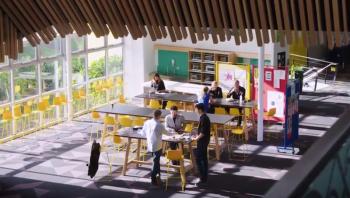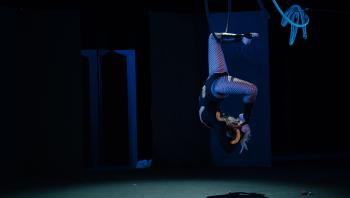Explore your options
Our film school has several options for you to study for the career in the film and televison production industries. If you're looking to try things out our Level 3 Certificate or Level 4 Certificate are a great way to get a taste.
Once you know that a career in the screen industry is for you, our world-class Bachelors Degree will give you the specialist skills and creative vision to launch your career.
If you're looking to make the jump above the line or explore your creative passions our Master of Creative Practice will give you the mentorship and tools to expand your horizons.
Programmes and study path
| PROGRAMME | LEVEL | DURATION | CAREER OPTIONS | START DATES |
|---|---|---|---|---|
| New Zealand Certificate in Study and Employment Pathways (Level 3) | 3 | Full-time for 16 weeks or part-time options available | Entry into further study at certificate or diploma level. | February or July |
| New Zealand Certificate in Study and Employment Pathways (Level 4) - Performing and Screen | 4 | Full-time for 16 weeks or part-time options available | Entry into further study toward a career in the media or performing and screen arts. | February or July |
| Bachelor of Performing and Screen Arts (Screen Arts) | 7 | Full-time for three years | Production manager, Assistant Director, Camera Assistant, Screenwriter, Editor, Director, Camera Operator, Cinematographer, Gaffer, Lighting Assistant, Sound recordist, Boom Operator, Sound designer, Production Co-ordinator, Location manager, Content developer, Production Assistant, Screen Project Researcher, Assistant Editor, Digital ingest technician | February |
| Postgraduate Certificate in Creative Practice | 8 | Six months full-time or one year part-time | Artist, Art director, Product designer, Graphic designer, Director, Photographer, Experience designer, Producer, Sculptor, Visual artist, Performance designer, Service designer, Curator, Choreographer, Filmmaker | February or July |
| Postgraduate Diploma in Creative Practice | 8 | Full-time for one year or part-time for two years | Artist, Creative director, Curator, Digital artist, Director, Graphic designer, Photographer, Producer, Visual artist, Choreographer | February or July |
| Master of Creative Practice | 9 | Full-time for 18 months or part-time for three years | Artist, Art director, Product designer, Graphic designer, Director, Photographer, Experience designer, Producer, Production designer, Sculptor, Visual artist, Performance designer, Service designer, Curator, Actor for theatre, film and television, Choreographer, Filmmaker | February or July |


